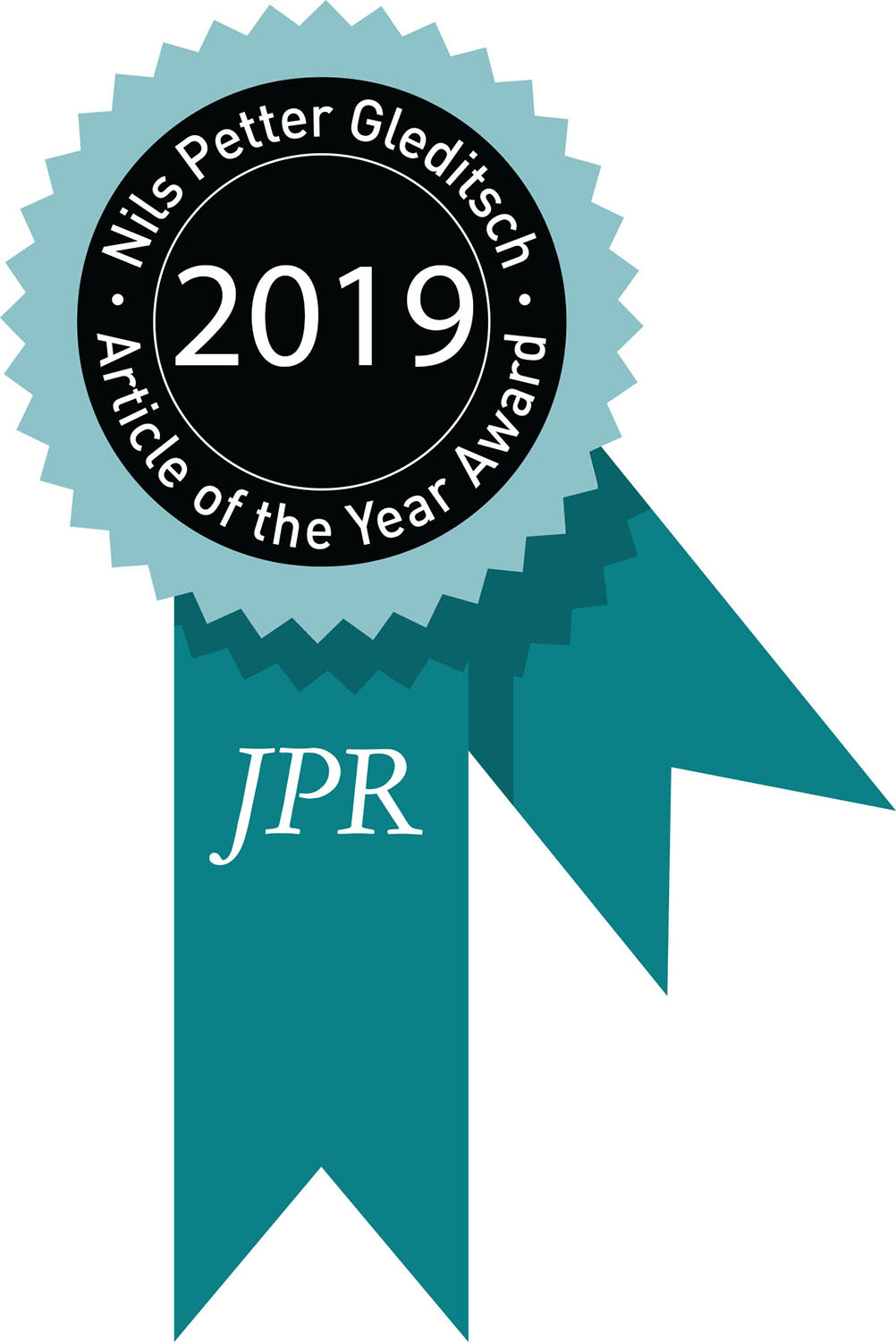
A jury consisting of Anja Shortland (King’s College London), Nils Metternich (University College London) and Charles Butcher (Norwegian University of Science and Technology) have awarded this year’s Nils Petter Gleditsch Article of the Year Award to Emily Kalah Gade, Mohammed M Hafez & Michael Gabbay for their article titled ‘Fratricide in rebel movements: A network analysis of Syrian militant infighting’ (Journal of Peace Research 56(3): 321–335).
All articles published in Volume 56 of JPR were eligible for the award. Articles were judged on their theoretical contribution, methodological innovation and sophistication and relevance to practical aspects of building peace. As ever, the jury was faced with the tricky task of adjudicating between many outstanding articles.
Gade et al.’s article on ‘Fratricide in rebel movements’ provides a clear vision of what conflict and peace scholars can achieve when they leverage innovations in empirical methods and detailed data collection. In past years, scholars have increasingly embraced the fact that most conflicts involve multiple actors and that these dynamics cannot be theorized and empirically assessed with standard two-player concepts and standard statistical tests. This has led to a growing literature on rebel alliances, movement fragmentation and rebel organization competition.
In their article, Gade, Hafez and Gabbay provide an impressive contribution to this debate by focusing on the conditions under which infighting occurs between rebel groups. The authors draw on existing theories of infighting between rebel organizations, to study conflict dynamics between rebel groups in Syria. They test their hypotheses on a unique new dataset of infighting claims made in primary insurgent documents such as rebel operational communiques, social media postings and jihadist web forums by rebel organizations in Syria. These data facilitate a unique systematic study of conflict dynamics and should encourage other scholars to think about how and where information about rebel organizations can be found and harvested. The article then applies several network analytic approaches to conclude that ideologically distant groups have a higher propensity for infighting. Similarly, power asymmetry among rebel organizations raises the probability of conflict. We hope that the role of ideology in rebel organization infighting identified here will stimulate future research in this area.
This article is an example of posing an important research question, exploiting novel data sources and applying cutting edge methods. We believe that this article is a truly visionary preview of how research in our discipline will evolve in the coming years: moving away from macro-data and standard statistical technics to analysing large-scale micro-data collected through innovative means.
The award is USD 1,000.
Honourable mention goes to the runners-up:
Tellez, Juan Fernando (Duke University), ‘Peace agreement design and public support for peace: Evidence from Colombia’, Journal of Peace Research 56(6): 827–844.
Leader Maynard, Jonathan (University of Oxford), ‘Ideology and armed conflict’, Journal of Peace Research 56(5): 635–649.






